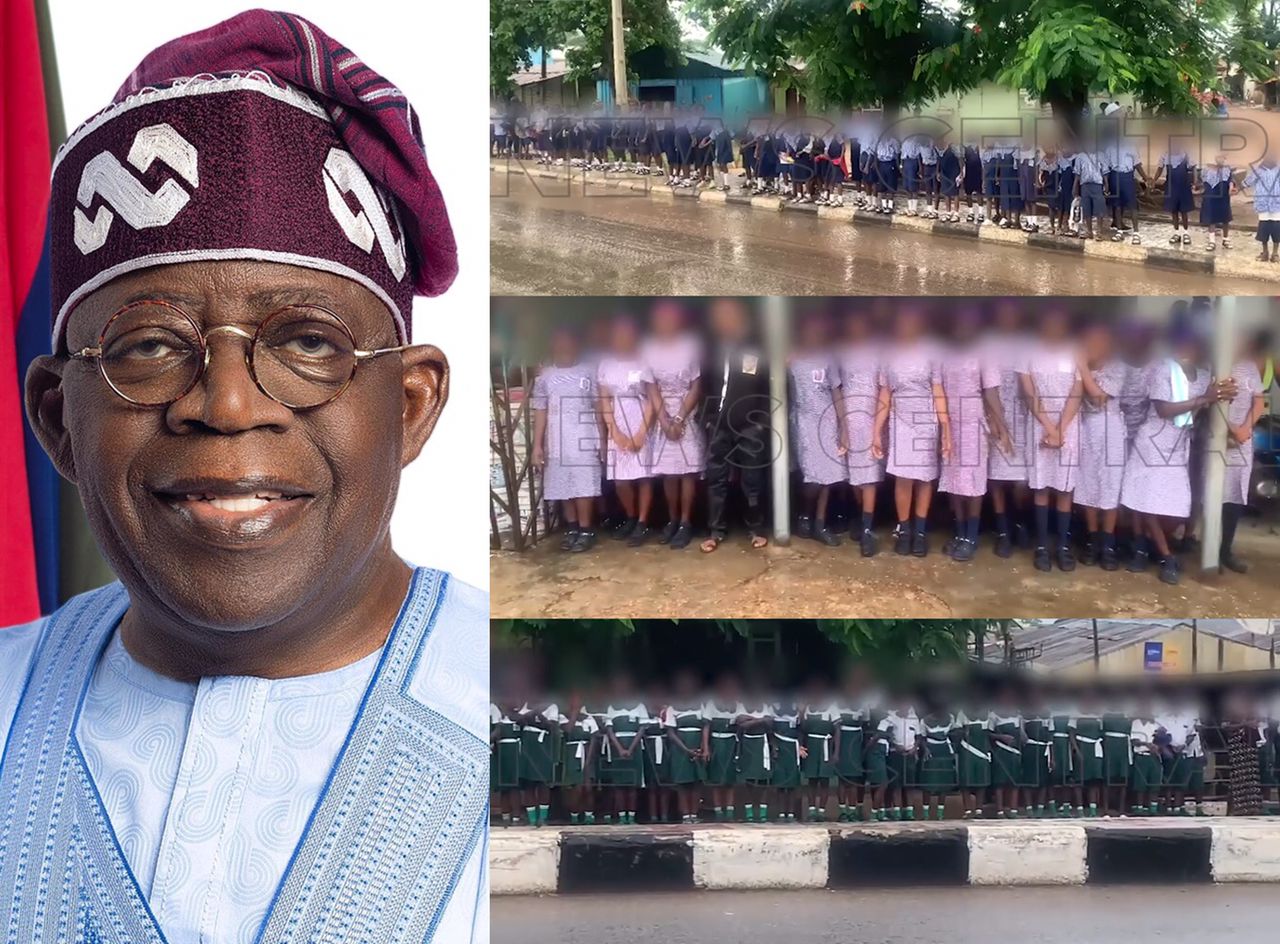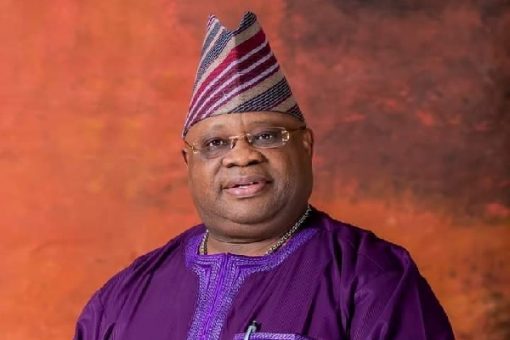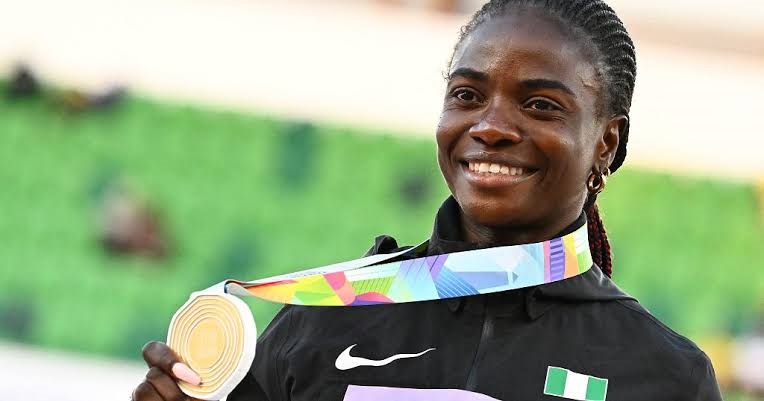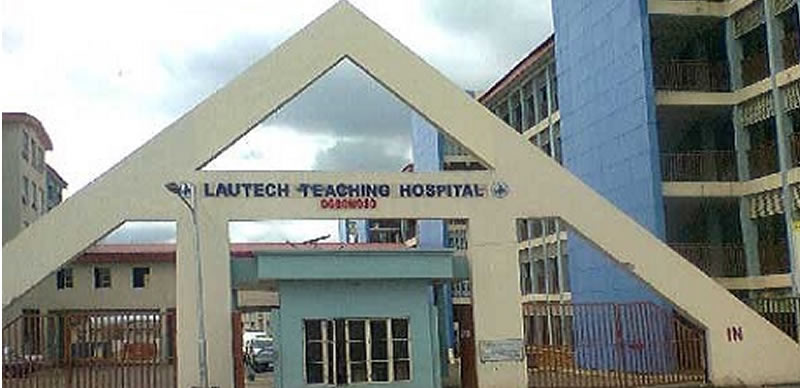
Pomp Amid Pain: Students Reportedly Made to Line Streets as Tinubu Visits Markurdi for Condolence

The streets of Makurdi, the Benue State capital, came alive with an unusual buzz on Tuesday morning as President Bola Ahmed Tinubu made his way into the heart of the state for a condolence visit to the victims and families affected by recent violent attacks. But beyond the presidential motorcade and the security detail flanking every corner, what drew the most attention—and sparked debate online and offline—was the presence of schoolchildren reportedly instructed to line the roads under the scorching sun to welcome the visiting President.
Clad in uniforms, some looking visibly tired while others forced polite cheers and claps, students from different public schools stood along the major routes leading to the Benue State Government House. Observers noted that many of the students looked confused, while some held miniature Nigerian flags, a sight reminiscent of the kind of ceremonial welcome often reserved for festive or celebratory state occasions—not one marked by grief and mourning.
Reports filtering in from eyewitnesses and several teachers have painted a controversial picture of the visit. According to multiple sources, school administrators were allegedly instructed to mobilize students early in the morning to position themselves strategically around the capital city as a gesture of honor for President Tinubu's arrival. For many, the optics of the act have been labeled tone-deaf, especially considering the somber reason for the President’s presence in the state.
Benue has in recent months been rocked by a string of violent attacks attributed to armed herdsmen and bandits, leaving dozens dead, scores injured, and thousands displaced. The state has become one of the epicenters of Nigeria’s ongoing insecurity challenges, with entire communities razed and families left with nothing but trauma and ruins. President Tinubu’s visit was long-anticipated by citizens and leaders alike, with hopes that his presence would bring not just solace, but concrete actions toward curbing the bloodshed.
However, the decision—if officially sanctioned—to have schoolchildren participate in what critics have called a “forced welcome parade” has shifted the narrative from condolence to controversy. Social media erupted with photos and videos showing tired students fanning themselves, some barefoot, others sitting on the hot pavement as they waited for the President's convoy. Many Nigerians expressed outrage, questioning the morality and appropriateness of involving minors in a politically symbolic gesture in the middle of a humanitarian crisis.
“Imagine using school children, some as young as eight or nine years old, to wave at a politician while people in their state are mourning. This is not leadership; this is theater,” one user tweeted.
Others accused the state government of prioritizing optics over empathy. “It’s like asking a wounded person to smile for a camera just because a guest came to say sorry,” said Reverend Joseph Tersoo, a Makurdi-based clergyman. “These children should have been in classrooms. If the President truly came to console us, then the mood should reflect mourning, not fanfare.”
Parents of some of the students involved voiced their frustration. Mrs. Aondofa Ejeh, whose daughter attends a government primary school near Wadata, said she received no prior notice from the school about the event. “I went to the market early, only to return and find that my child had not been in class but standing on the street under the sun. That’s not why I sent her to school. What lesson did she learn today?” she asked, visibly upset.
Efforts to get an official response from the Benue State Ministry of Education yielded no immediate answers. However, an unnamed official within the state’s protocol department claimed that the welcome lineup was “voluntary” and meant to “show respect to the President who took time out of his schedule to visit the state.” That explanation, however, did little to calm the anger swelling among civil society groups and education advocates.
Meanwhile, President Tinubu’s visit proceeded with a series of scheduled stops. He visited St. Theresa’s Hospital in Makurdi, where many of the injured are currently receiving treatment. There, he met with some survivors and offered his condolences, describing the attacks as “deeply troubling” and promising increased security intervention from the federal government. “I am here not just as President, but as a fellow Nigerian grieving with you. I promise that your pains will not be ignored,” Tinubu said during a brief interaction with the victims.
He later held a closed-door meeting with Governor Hyacinth Alia and traditional rulers at the Benue State Government House. Though details of the meeting remain sketchy, insiders hinted at discussions centered around increased military presence in rural communities and the establishment of emergency relief programs for displaced families.
Despite the intended goodwill of the President’s visit, the scene on the streets continues to spark widespread criticism. Many observers have highlighted the contrast between the intention of mourning and the practice of political pageantry. “A condolence visit should be solemn, not ceremonial,” said Professor Sam Agbede, a political analyst. “We must move away from this culture of using public appearances for propaganda and instead focus on the issues at hand—security, healing, and accountability.”
As the sun set over Makurdi, the students who had earlier lined the streets were quietly returned to their schools, with many too exhausted to even resume normal lessons. For them, the day was not just another school day—it was a day of forced civic performance in the midst of collective tragedy. And for a state still reeling from violence, the debate now becomes whether sympathy can truly be shown with sincerity when it’s choreographed for optics.
Whether President Tinubu's visit will lead to tangible improvements remains to be seen. But the echoes of schoolchildren lining the streets in forced jubilation may linger far longer than the words of any speech delivered that day.


